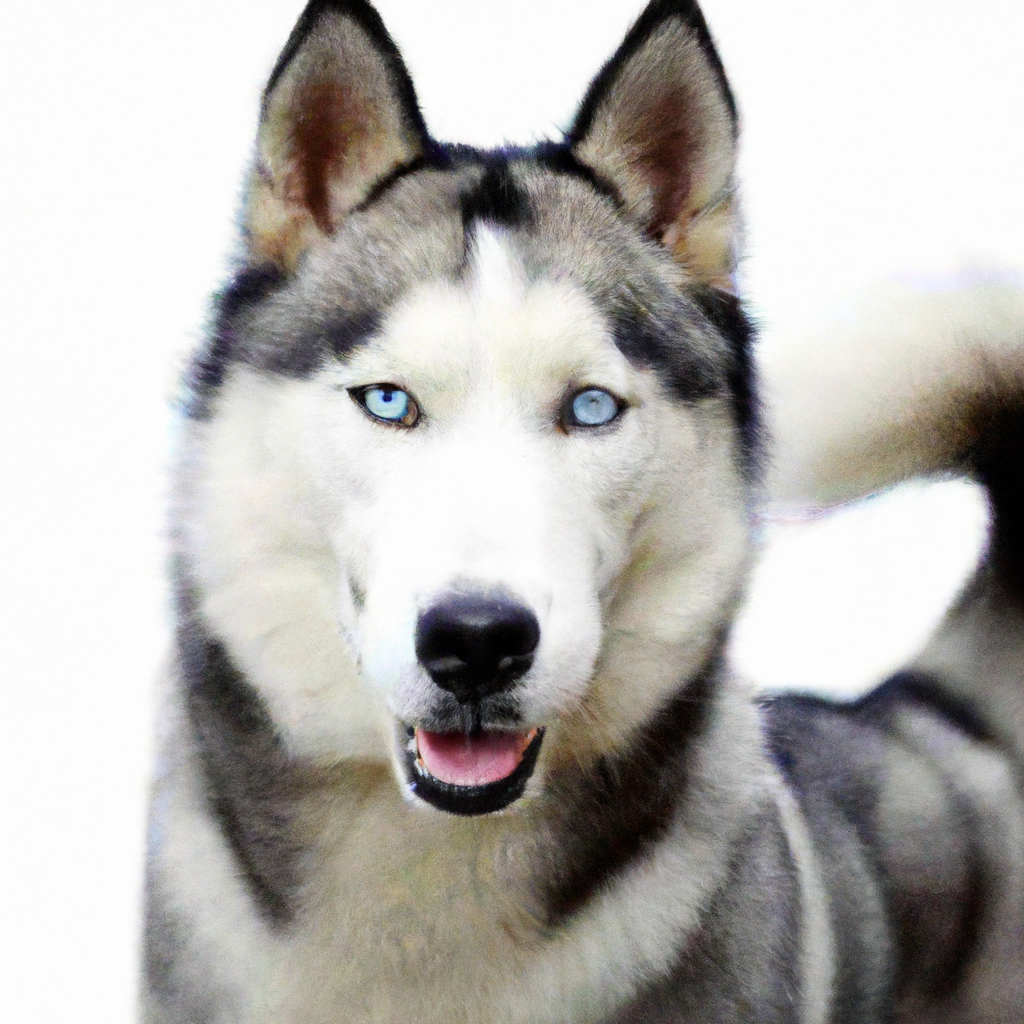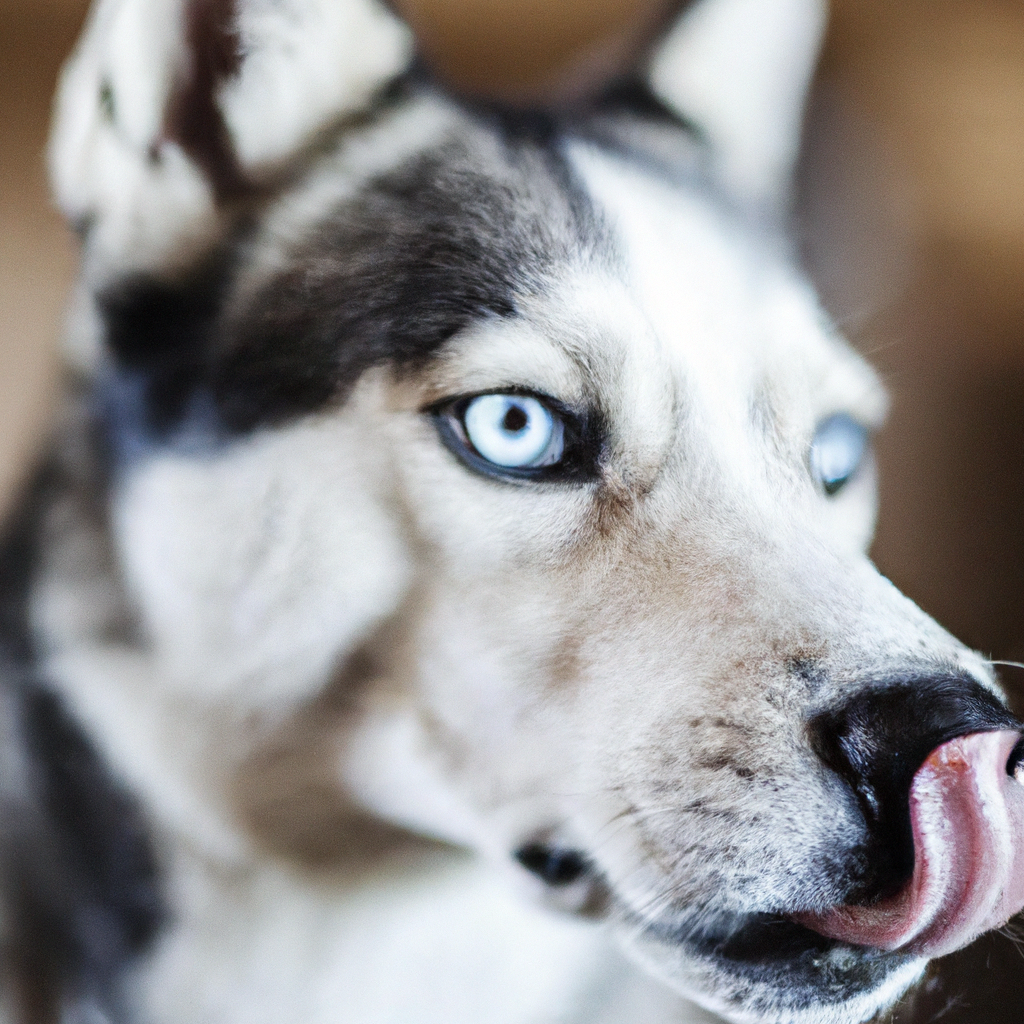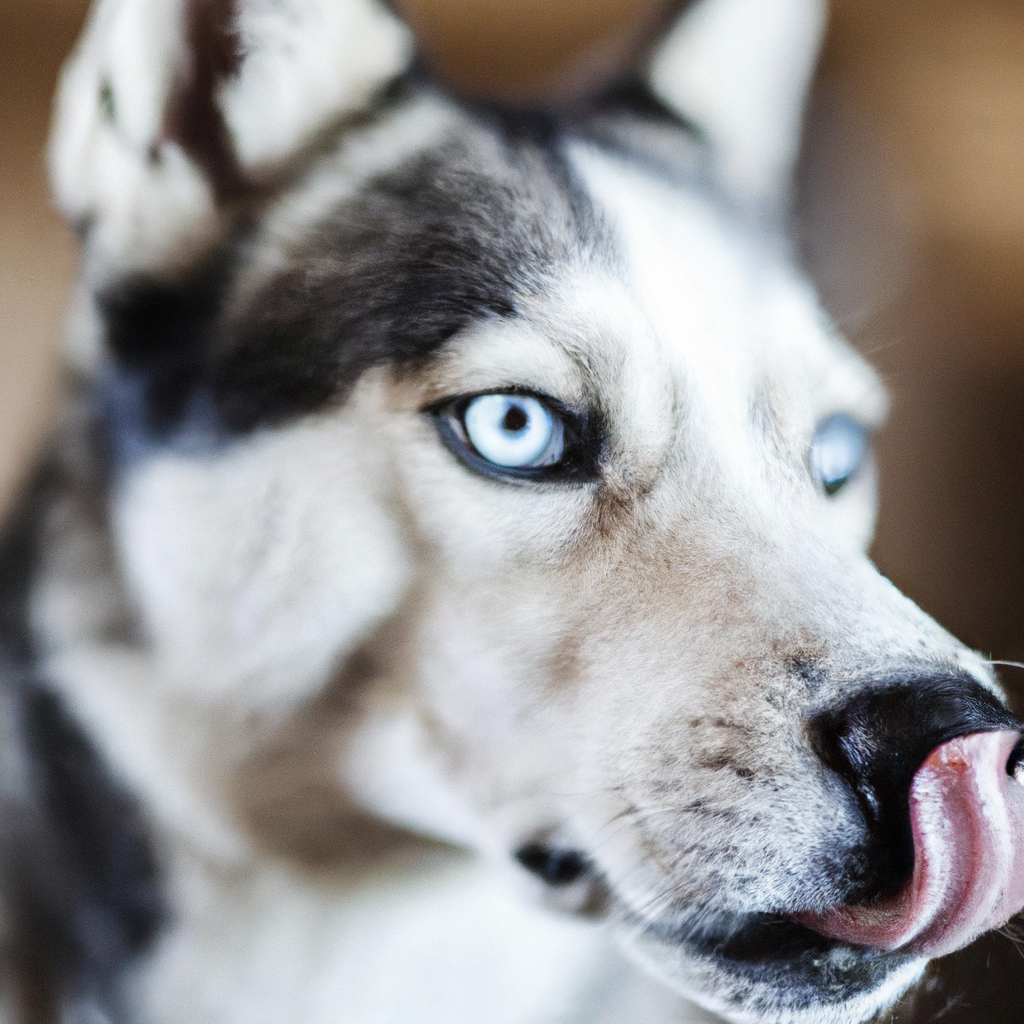If you’re the proud owner of a husky or considering bringing one home, it’s important to know what these beautiful canines eat. In this article, we’ll explore the dietary needs of huskies and provide you with a comprehensive understanding of what they should be eating. From discussing their puppyhood nutrition requirements to outlining a well-balanced adult diet, we’ve got you covered. Whether you’re seeking guidance on choosing commercial dog food or looking for tips on preparing homemade meals, we’ll help you make informed decisions to keep your husky happy and healthy. So, let’s jump right in and discover what exactly huskies should be devouring to thrive!
What Do Huskies Eat

Overview of Husky Diet
As a husky owner, it’s crucial to understand the dietary needs of these beautiful and energetic dogs. Huskies are a unique breed with specific nutritional requirements. A balanced and nutritious diet is essential for their overall health, energy levels, and longevity. In this article, we will explore the different components of a husky’s diet, including their nutritional needs, commercial dog food options, homemade diet considerations, raw food diet possibilities, and feeding schedules. We will also discuss foods that should be avoided and provide valuable feeding tips for husky owners. Remember, consulting a veterinarian is highly recommended to ensure your husky’s dietary needs are met.
Nutritional Needs of Huskies
Like all dogs, huskies require a diet that includes protein, fats, carbohydrates, vitamins, and minerals. However, due to their high energy levels and unique physiology, huskies have specific nutritional needs that must be met. Protein is particularly important for huskies as it aids in muscle growth and repair. Fats provide an essential energy source and omega-3 fatty acids, which contribute to a healthy coat and skin. Complex carbohydrates offer sustained energy for these active dogs, while fruits and vegetables provide essential nutrients and antioxidants. Additionally, huskies may benefit from certain supplements and vitamins to support their overall health and well-being.
Essential Components of a Husky’s Diet
Animal Protein
High-quality animal protein should be the primary component of a husky’s diet. This can come from sources such as chicken, turkey, beef, fish, or lamb. Protein is essential for muscle development and provides the necessary amino acids for healthy growth and repair.
Healthy Fats and Omega-3
Huskies need healthy fats in their diet, which can be obtained from sources like salmon, flaxseed, and coconut oil. Omega-3 fatty acids are particularly important for their skin and coat health, as well as supporting their immune system.
Complex Carbohydrates
Complex carbohydrates, such as brown rice, sweet potatoes, and whole grains, provide huskies with sustained energy throughout the day. These carbohydrates prevent spikes in blood sugar levels and help maintain their energy levels during physical activities.
Fruits and Vegetables
Fruits and vegetables are a valuable addition to a husky’s diet, providing a range of vitamins, minerals, and antioxidants. Blueberries, carrots, spinach, and broccoli are excellent choices. However, it’s important to select options that are safe for dogs and avoid any harmful foods.
Supplements and Vitamins
While a well-balanced diet should provide huskies with all the necessary nutrients, certain supplements or vitamins may be beneficial. Omega-3 supplements, probiotics, and joint supplements can support their overall health and address specific needs, but it’s important to consult a veterinarian before adding any supplements to their diet.
Commercial Dog Food for Huskies
Choosing High-Quality Dog Food
When selecting commercial dog food for your husky, it’s important to choose high-quality options that meet their specific nutritional needs. Look for brands that use real animal proteins as the main ingredient, avoid fillers and artificial additives, and have undergone rigorous testing for safety and quality.
Recommended Brands for Huskies
While there are many good options available, some recommended dog food brands for huskies include Blue Buffalo, Canidae, Taste of the Wild, Orijen, and Wellness. These brands offer a variety of formulas tailored to meet the unique nutritional requirements of huskies.
Wet vs. Dry Food
Both wet and dry dog food can be suitable for huskies, and the choice ultimately depends on their individual preferences and needs. Dry food is convenient, aids in dental health, and can be left out for free-feeding. Wet food, on the other hand, provides moisture and can be more appealing to dogs with dental issues or picky eaters. It’s often recommended to offer a combination of both for a well-rounded diet.

Homemade Diet for Huskies
Benefits and Considerations
Some husky owners prefer to prepare homemade meals for their dogs. This allows for better control over the ingredients and can be tailored to meet specific dietary needs. However, it requires careful planning, research, and consultation with a veterinarian or canine nutritionist to ensure the diet is balanced and provides all the necessary nutrients.
Meat and Protein Sources
When preparing a homemade diet, ensuring the inclusion of high-quality animal proteins is crucial. Lean meats like chicken, beef, or turkey, along with organ meats like liver, can provide the necessary protein. It’s important to balance different protein sources and make sure they are cooked thoroughly to eliminate any potential bacteria.
Fruits, Veggies, and Grains
Including a variety of fruits, vegetables, and grains in a homemade husky diet is essential for providing a wide range of vitamins and minerals. However, some fruits and vegetables can be toxic to dogs, so it’s important to research safe options. Whole grains like brown rice or oats can be included as a source of complex carbohydrates.
Proper Food Preparation
When preparing homemade meals for your husky, it’s crucial to prioritize proper food preparation and hygiene. Raw meat should be handled carefully to avoid cross-contamination, and all ingredients should be thoroughly cooked before feeding. It’s also recommended to portion and store the meals properly to maintain freshness and prevent any bacterial growth.
Raw Food Diet for Huskies
Pros and Cons
A raw food diet, also known as a “BARF” diet (Biologically Appropriate Raw Food), is based on the principle of feeding dogs a diet that imitates their wild ancestors. Proponents of raw food diets believe that it provides numerous benefits, including improved dental health, a healthier coat, increased energy, and better digestion. However, it’s important to consider the risks associated with handling raw meat and the potential for nutritional imbalances.
Types of Raw Food
A raw food diet typically includes raw meat, bones, fruits, vegetables, and sometimes organs. The meat should come from safe sources, and bones should be large and raw to prevent splintering. Fruits and vegetables should be finely chopped or pureed for easier digestion.
Safe Handling and Preparation
When opting for a raw food diet, safety is paramount. Raw meat can contain harmful bacteria like Salmonella or E. coli, so proper handling and hygiene are crucial. It’s important to wash hands, utensils, and food preparation surfaces thoroughly and to store raw meat separately from other foods. Consultation with a veterinarian or a canine nutritionist is highly recommended when considering a raw food diet for your husky.
Feeding Schedule for Huskies
Puppies
Puppies have different dietary needs compared to adult huskies and should be fed smaller, more frequent meals. Typically, a husky puppy should be fed three to four times a day, with portion sizes appropriate for their age and size. Consult with a veterinarian for specific guidance and to ensure a balanced diet that supports their growth and development.
Adults
Once a husky reaches adulthood, feeding can be transitioned to two meals a day. These meals should be evenly spaced, providing sustenance and energy for their daily activities. It’s important to monitor portion sizes to prevent overeating or underfeeding, as huskies are prone to weight gain.
Senior Huskies
As huskies age, their dietary needs may change. Senior huskies may require adjustments to their portion sizes or additional supplements to support their joint health or address other age-related concerns. Regular check-ups with a veterinarian can help determine appropriate changes to their diet as they enter their golden years.
Exercise and Feeding
It’s important to consider your husky’s exercise routine when determining their feeding schedule. Feeding too close to vigorous exercise can lead to discomfort or digestive issues, so it’s recommended to wait for at least an hour after exercise before offering a meal. Similarly, ensure they have ample time to digest their food before engaging in any strenuous activities.
Foods to Avoid Feeding Huskies
Toxic Foods
Certain foods can be toxic for dogs, and it’s important to be aware of these and ensure they are kept out of your husky’s reach. Some examples include chocolate, onions, garlic, grapes, raisins, caffeine, alcohol, and foods containing xylitol. These foods can cause serious health issues or even be potentially fatal to your husky.
Harmful Ingredients
When selecting commercial dog food or preparing homemade meals, it’s important to avoid harmful ingredients. These include artificial additives, preservatives, excessive salt or sugar, and low-quality fillers. Always read the ingredient labels and choose options with high-quality, natural ingredients.
Allergenic Foods
Like humans, huskies can develop food allergies or sensitivities. Common allergenic foods for dogs include wheat, corn, soy, and certain proteins like chicken or beef. If you notice any signs of allergies such as itching, digestive issues, or skin problems, consult with a veterinarian to determine potential allergens and adjust their diet accordingly.
Feeding Tips for Husky Owners
Portion Control
Proper portion control is crucial for maintaining a healthy weight for your husky. It’s recommended to follow feeding guidelines provided by the dog food manufacturer, adjusting the portion sizes based on your husky’s age, activity level, and overall body condition. Regularly monitor their weight and adjust portion sizes as needed.
Hydration
Water is just as important as food for your husky’s well-being. Ensure they have access to fresh, clean water at all times. During hotter months or after vigorous exercise, they may require increased water intake to stay properly hydrated.
Slow Feeding
Huskies are known for their enthusiasm when it comes to mealtime. However, eating too quickly can lead to digestive problems like bloating or choking. Consider using slow feeding bowls or puzzle toys that encourage slower eating and provide mental stimulation.
Food Dispensing Toys
To keep your husky mentally stimulated and prevent overeating, consider using food-dispensing toys or interactive feeders. These toys require your husky to work for their food, which can help prevent excessive eating and encourage problem-solving skills.
Monitoring Weight and Body Condition
Regularly monitoring your husky’s weight and body condition is essential for maintaining their overall health. Keep an eye on their body condition score, which should be in the healthy range. If you notice any significant weight gain or loss, consult with a veterinarian to address potential underlying issues.
Diet Changes and Special Considerations
Transitioning to New Diets
When transitioning your husky to a new diet, it’s important to do so gradually to prevent digestive upset. Start by mixing a small portion of the new food with the old food and gradually increase the proportion of the new food over several days. Monitor your husky for any signs of intolerance or allergies during the transition period.
Huskies with Allergies
If your husky has known allergies or sensitivities, it’s important to identify and eliminate the specific allergens from their diet. This may require working with a veterinarian or canine nutritionist to develop an elimination diet or finding suitable hypoallergenic dog food options. Regularly monitoring for any signs of allergies or sensitivities is crucial to ensure their well-being.
Huskies with Medical Conditions
Some huskies may have specific medical conditions that require dietary modifications. For example, huskies with kidney issues may require a low-protein diet, while those with diabetes may benefit from a diet with controlled carbohydrates. In such cases, it is essential to consult a veterinarian to create a tailored diet plan that addresses the specific medical condition.
Pregnant and Nursing Huskies
Pregnant and nursing huskies have increased nutritional needs to support their own health and the growth of their puppies. They require a diet that is higher in calories, protein, and essential nutrients. Consult with a veterinarian to ensure the feeding plan adequately supports the needs of the mother and her pups during this crucial time.
Consulting a Veterinarian
Importance of Professional Guidance
While this article provides valuable information about husky diets, it’s crucial to seek professional guidance from a veterinarian. A veterinarian can assess your husky’s specific needs, provide customized dietary recommendations, and monitor their overall health.
Dietary Recommendations and Customization
A veterinarian can help customize a diet plan that best suits your husky’s age, activity level, health condition, and any specific dietary requirements. They can recommend commercial dog food brands, provide guidance on homemade or raw food diets, and suggest appropriate supplements when necessary.
Regular Health Check-ups
Regular health check-ups with a veterinarian are essential to monitor your husky’s overall well-being, including their nutrition and dietary needs. These check-ups allow for early detection of any health issues and help ensure that their diet is adjusted according to their changing needs throughout their life stages.
In conclusion, understanding what huskies eat is vital for their health and well-being. A properly balanced diet that includes high-quality animal protein, healthy fats, complex carbohydrates, fruits, and vegetables is essential for their unique nutritional needs. Whether opting for commercial dog food, homemade diets, or raw food diets, it’s important to prioritize safety, hygiene, and consult with a veterinarian for guidance. Providing an appropriate feeding schedule, avoiding toxic foods, and following feeding tips will help ensure your husky remains happy, healthy, and full of energy for years to come. Remember, your veterinarian is your best resource for tailored dietary recommendations and expertise in caring for your husky’s dietary needs.
